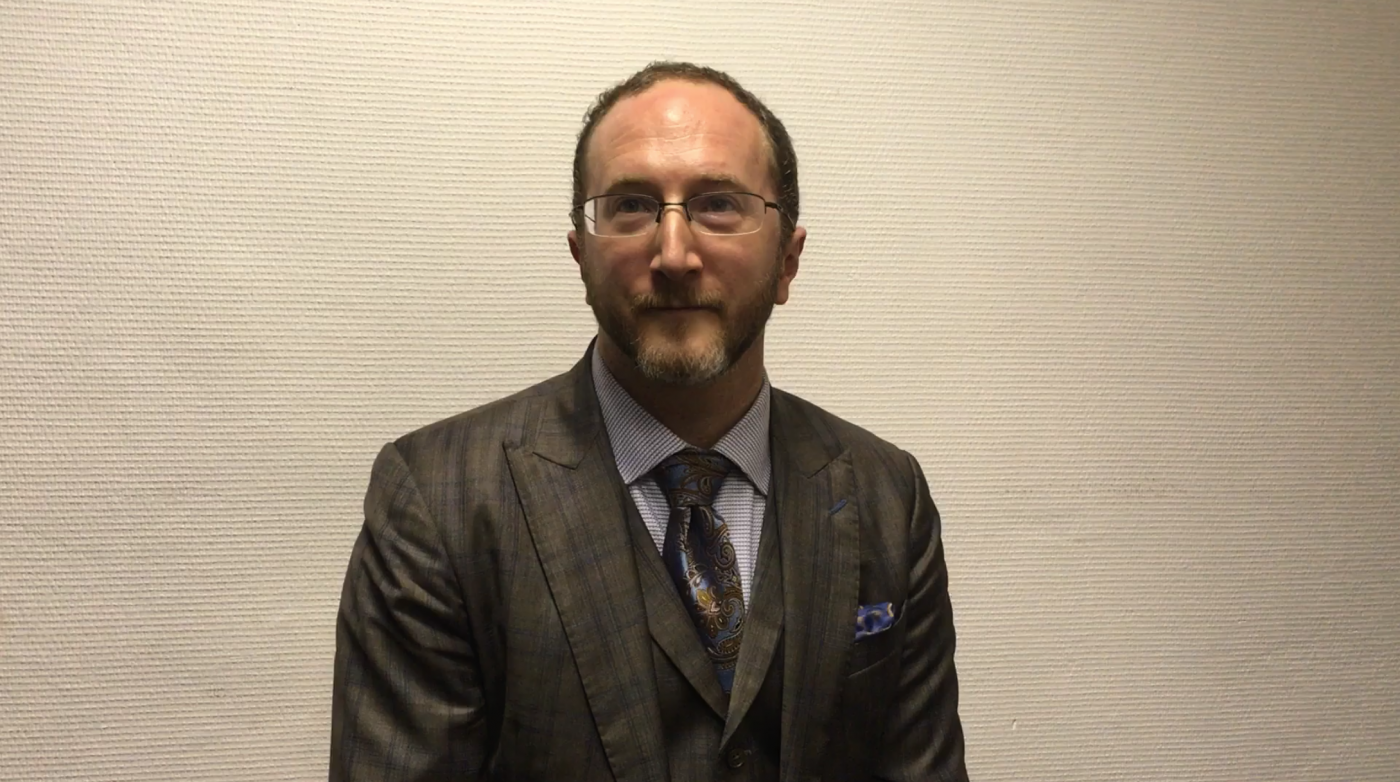#MSParis2017 – Lemtrada Shows Good Safety and Lasting Efficacy Over 7 Years, Doctor Says in Interview
Written by |

Dr. Aaron Boster decided to become an MS specialist at age 12 after watching someone close succumb to the disease.
Lemtrada (alemtuzumab) remains a “game-changer” of a treatment for relapsing multiple sclerosis (MS), with benefits continuing and no new side effects seen in a study of its use that now goes out seven years, Aaron Boster, a neuroimmunologist at Ohio Health, said in an interview at the 7th Joint ECTRIMS-ACTRIMS Meeting that concludes on Saturday in Paris.
“This is a game-changer, this is transformative,” Boster said in a Friday interview with Multiple Sclerosis News Today of Lemtrada and data on its use in relapsing MS patients with active disease in the TOPAZ study (NCT02255656). The trial is following over 800 relapsing MS patients who took part in a previous CARE MS-I and CARE MS-II extension study (NCT00930553), and is a rich source of information on long-term outcomes.
“It’s so exciting to know now, seven years out, it just keeps getting better,” said Boster, a principal investigator in the pivotal CARE MS trials for the Sanofi-Genzyme therapy.
At year seven, most relapsing patients — 75 percent — in the Phase 4 TOPAZ study “have stable or improved exams,” he added, while “25 percent have some progression.”
Boster fully attributes Lemtrada’s ability to arrest or reverse disability in many patients to its mechanism of action, which “reboots or rewrites the immune response.” In the interview, he discusses in clear, even animated, detail how the drug targets only adult T- and B-cells, wiping out these immune system cells — but not in a “napalm-like” manner — before letting them return in a nearer state of healthy balance.
Lemtrada basically “resets the immune response,” especially favoring regulatory T-cells that can control inflammation — and can do so after just two treatment courses, he said.
“That’s why, I think, we can see a durable effect that goes on for years in the absence of retreatment,” Boster said.
What’s more, it often does so within a very defined period of use — as little as two treatment courses involving five, and then three, infusions — so that the drug is not continuously in a patient’s system. “It leaves your body in a month,” he said, but “the effects are long term.”
Boster, who said he decided to enter neurology with a specialty in MS at age 12, after watching someone close succumb to this disease with no hope of treatment, also gave very detailed examples of patients he treats — a woman diagnosed with severe disease and a man with disabling symptoms. Both benefited from Lemtrada in ways “that might be subtle” when measured on an approved scale, he said, but in terms of life quality were “terribly meaningful.”
Lemtrada was approved for use by the FDA in 2014 but only as a third-line treatment because of safety concerns. In fact, its U.S. label states that, because of its safely profile, Lemtrada should generally be reserved for patients who have had an inadequate response to two or more drugs indicated for the treatment of MS.
It was approved in Europe one year earlier for the same relapsing MS patient group — those with active disease — but it can be used across the EU as an initial, or first-line, treatment.
That difference in U.S. and EU labeling bothers Boster greatly. Long-term studies show no increase in risk with Lemtrada use and enduring benefits.
“What we learned last year, at six-year data, is same as what we know now at seven-year data,” he said, explaining this means a consistent profile for adverse events, which he described as largely infusion reactions. “The side effects profile has not increased. … It’s reassuring to know that as we move forward in time, we don’t pick up new scary stuff.”
What’s more, Boster said, is that patients who did relapse or show signs of active disease returning could continue on Lemtrada or safely switch to another therapy of their choice.
“If there’s a key take-home [message], it’s that you can go back to another therapy … this does not close the door,” he said. “I would submit to you that the MS is changed. And if, in fact, you were to go to a different therapy, you might find an easier time of controlling the disease process, because the mechanism of alemtuzumab has changed the milieu in the immune system.”
Topaz will continue to follow active relapsing MS patients treated with Lemtrada through March 2020.
The complete interview with Boster can be seen below:


